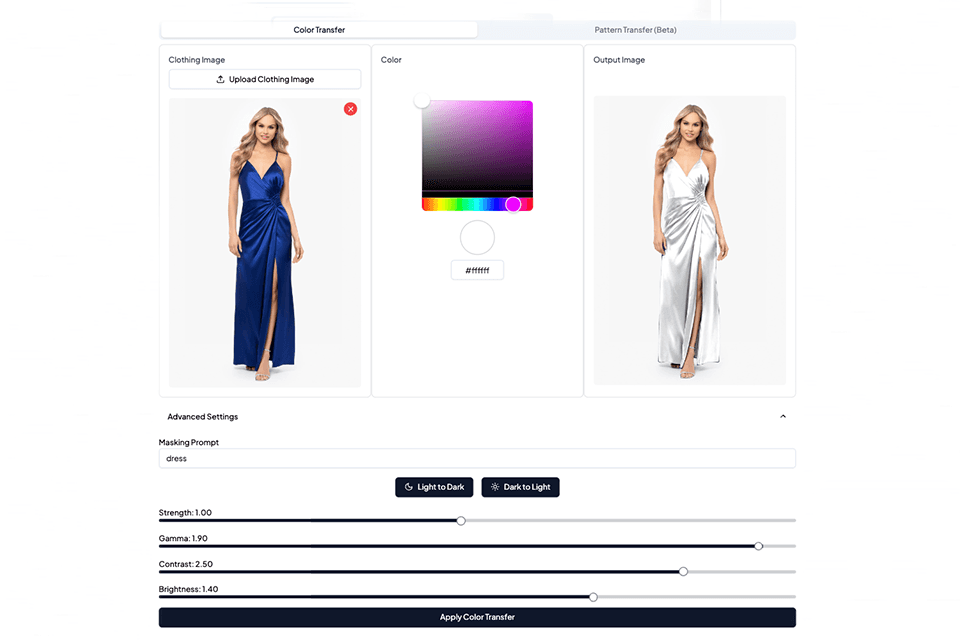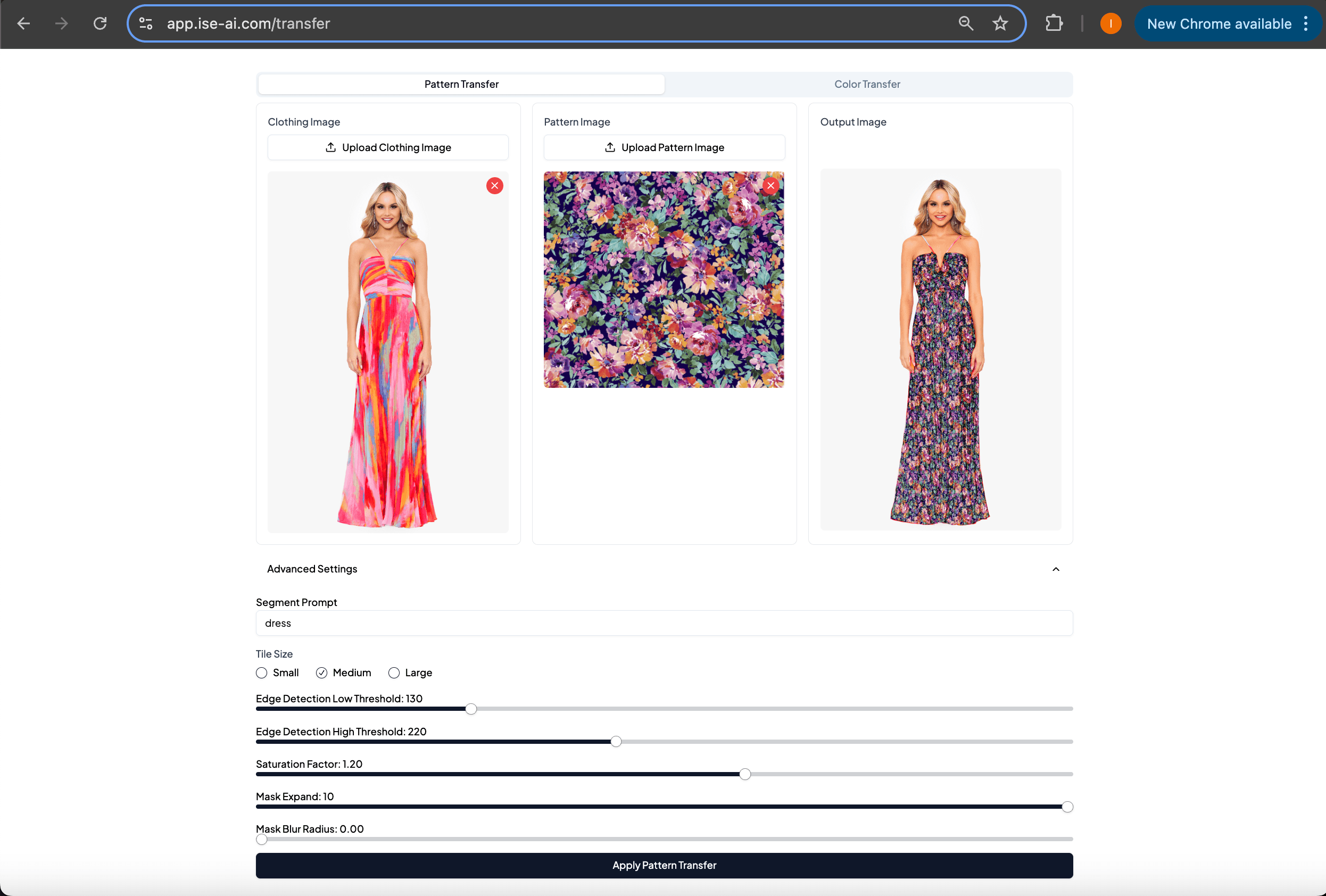Generative AI Product Prototype Illustration

Generative AI product prototype illustration is revolutionizing the design and sell in process in the retail industry. Designers and sales associates can now visualize new colors and prints on existing designs within 30 seconds using a generative AI web platform, which means there's no need to wait for a seamstress to sew a new sample or a retoucher to spend hours in Photoshop to sell in to your retailers. This technology is transforming the way companies approach product development and market testing, significantly reducing risks and costs of traditional sampling methods as well as expediting sales.
Streamlining the Design Process
Generative AI enables designers to rapidly create and iterate on product prototypes without the need for physical samples. This capability is particularly valuable when exploring new color variations and print designs for existing products.
Color Exploration
Designers can use AI-powered tools to instantly visualize how different color combinations would look on their products1. For example, a clothing manufacturer could upload images of their current line and use generative AI to:
Apply a wide range of color palettes to existing garments
Test seasonal color trends across their entire collection
Create custom colorways for specific retailers or markets

Print and Pattern Development
Similarly, generative AI can assist in creating and applying new prints and patterns to products:
Generate unique patterns based on design prompts
Apply existing prints to different product types
Adjust scale, placement, and color of prints on various items

Enhancing Market Testing
By leveraging generative AI for product visualization, companies can significantly improve their market testing process and reduce the risks associated with new product launches.
Retail Buyer Presentations
Generative AI allows companies to present a wider range of options to retail buyers without the need for extensive physical samples:
Showcase multiple colorways and print variations in high-quality digital renders
Quickly adjust designs based on buyer feedback during presentations
Demonstrate how products will look in different store environments
Consumer Testing
AI-generated product visualizations enable more comprehensive and cost-effective consumer testing:
Conduct online surveys with a broader range of design options
Use social media to gauge consumer interest in potential new designs
A/B test different color and print variations to identify top performers
Reducing Costs and Inventory Risk
One of the most significant advantages of using generative AI for product prototyping is the potential for cost savings and risk reduction.
Sampling Cost Reduction
Traditional sampling processes can be expensive and time-consuming. Generative AI helps by:
Minimizing the need for physical samples in early design stages
Reducing material waste associated with multiple iterations
Decreasing labor costs for sample production and shipping
Inventory Risk Mitigation
By testing designs virtually before committing to production, companies can:
Make more informed decisions about which products to manufacture
Produce more accurate demand forecasts based on pre-launch testing
Minimize the risk of overproduction and unsold inventory
Real-World Applications
Several industries are already benefiting from generative AI in product design and testing:
Fashion and Apparel
Clothing brands are using AI to visualize new seasonal collections, test color trends, and develop custom prints[3].
Home Decor
Furniture and home accessory companies are employing AI to showcase products in various colors and patterns, allowing customers to visualize items in their own spaces[3].
Automotive
Car manufacturers are utilizing generative AI to explore new color options and interior designs without the need for physical prototypes.
Conclusion
Generative AI is transforming product prototype illustration, offering a powerful tool for visualizing new colors and prints on existing designs. By enabling rapid iteration, enhancing market testing capabilities, and reducing costs and risks, this technology is becoming an essential asset for companies looking to stay competitive in fast-paced consumer markets.
As generative AI continues to evolve, we can expect even more innovative applications that will further streamline the product development process and improve the accuracy of market demand predictions.


